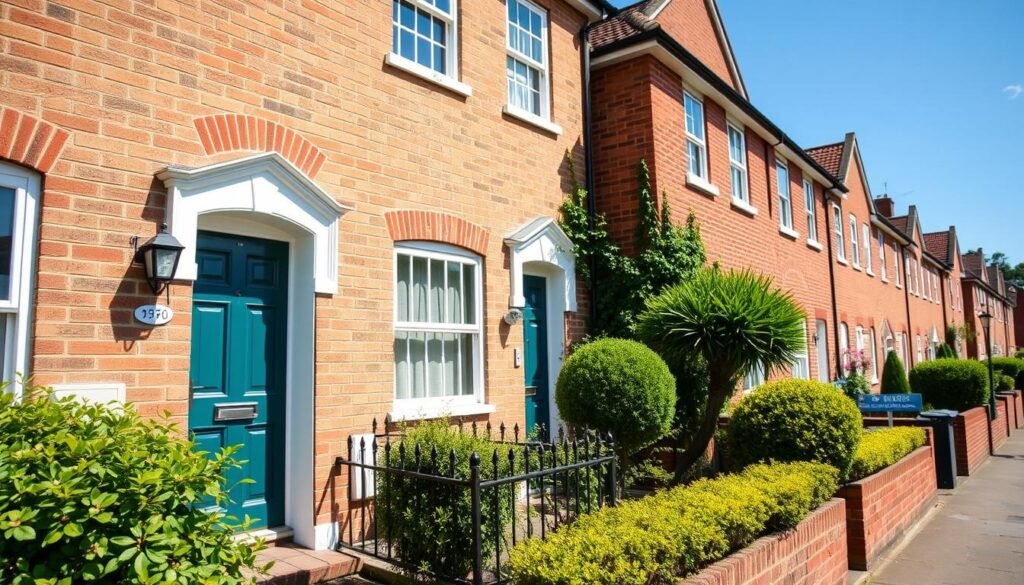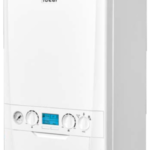Accessing the Property During a Tenancy
Key Takeaways
- Landlords must provide advance notice before entering a rented property
- Tenants have a right to quiet enjoyment and exclusive possession of their home
- Regular property inspections are crucial for maintenance and compliance
- Emergency situations may allow immediate access without notice
- Clear communication and documentation are essential for landlord-tenant relations
- Entering without permission could be considered trespassing or harassment
- Tenant’s refusal of access is a breach of contract
As a landlord, understanding your rights and responsibilities when it comes to accessing your rented property is crucial. This guide will explore the ins and outs of property access during a tenancy, helping you navigate this sometimes tricky aspect of property management. Let’s dive in and explore how you can maintain your property while respecting your tenants’ rights.

1. The Importance of Proper Access Procedures
Balancing Rights and Responsibilities
As a landlord, you have a vested interest in maintaining your property. However, it’s essential to remember that once you’ve rented out your property, your tenants have a legal right to quiet enjoyment of their home. Moreover, granting a tenancy gives the tenant exclusive possession, which includes the right to exclude others, including the landlord. Striking the right balance between these aspects is key to a harmonious landlord-tenant relationship.
Legal Framework for Property Access
The Housing Act 1988, the Landlord and Tenant Act 1985, and the Homes (Fitness for Human Habitation) Act 2019 provide the legal framework for property access in the UK. These laws stipulate that landlords must give proper notice before entering a rented property, except in emergencies. Understanding these legal requirements is crucial to avoid potential disputes or legal issues.
The Consequences of Improper Access
Entering a property without proper notice or tenant consent can have serious consequences. It may be considered trespassing or even a criminal act, potentially leading to legal action against you. Moreover, repeated attempts to access the property without permission could be considered harassment. These actions can seriously damage your relationship with your tenants, potentially leading to early termination of the tenancy or difficulty in finding future tenants.
2. Contractual Rights to Access
Importance of Well-Drafted Tenancy Agreements
To ensure you have the right to access the property, it’s crucial to have a well-drafted tenancy agreement that covers the reasons why you may need to enter the property. This gives you a contractual right to access and provides clear instructions to tenants about when they must provide access.
Using Professional Tenancy Agreements
To ensure your tenancy agreement is sufficiently well-drafted, consider using professionally drafted agreements. These agreements typically include clauses that cover various scenarios where you might need to access the property.
Implied Rights of Access
Even without explicit contractual terms, there are some implied rights of access:
- Section 11 of the Landlord and Tenant Act 1985 implies a term allowing landlords to access the property to inspect its condition and state of repair.
- The Homes (Fitness for Human Habitation) Act 2019 implies a similar clause.
- The Housing Act 1988 implies a term that tenants will give reasonable access for repairs.
All of these implied rights require at least 24 hours’ written notice.

3. Proper Notice Periods for Property Access
The 24-Hour Rule
In most cases, landlords are required to give at least 24 hours’ notice before entering a rented property. This notice should be in writing and specify the date and time of the proposed visit, as well as the reason for access.
Exceptions to the Rule
There are some situations where the 24-hour notice period may not apply. These include:
- Emergencies (e.g., fire, flood, gas leak)
- When immediate entry is necessary to comply with statutory obligations
- If the tenant has given permission for more frequent or less notice
Agreeing on Access Terms in the Tenancy Agreement
It’s good practice to include clear terms about property access in your tenancy agreement. This can help prevent misunderstandings and disputes later on. However, any terms must be fair and comply with relevant laws.
4. Reasons for Accessing the Property
Routine Inspections
Regular inspections are crucial for maintaining the condition of your property. They allow you to identify and address any issues early, potentially saving money on repairs in the long run.
Repairs and Maintenance
As a landlord, you have a legal obligation to keep the property in a good state of repair. This may require access to carry out necessary work or to assess reported issues.
Improvements vs. Repairs
It’s important to note the distinction between repairs and improvements. While you have implied rights to access for repairs, access for improvements typically requires explicit permission from the tenant or a specific clause in the tenancy agreement.
Extensive Works
For extensive works, it’s crucial to get the tenant’s permission in writing. This written confirmation should include details of the work to be performed and the expected timeframe for completion. This helps prevent misunderstandings and provides a clear record of the agreement.
Showing the Property to Prospective Tenants
If the current tenancy is coming to an end, you may need access to show the property to potential new tenants. This should be done with the current tenant’s agreement and with proper notice. It’s often best to wait for the current tenant to leave before conducting viewings, particularly given the cost and complexity of seeking to enforce access clauses through the court.
5. Emergency Access: When Immediate Entry is Necessary
Defining an Emergency Situation
Emergencies are situations that pose an immediate risk to the safety of the occupants or the integrity of the property. These might include:
- Fire or suspected fire
- Major water leaks or flooding
- Gas leaks
- Structural damage that poses a safety risk
Procedures for Emergency Access
In genuine emergencies, you may enter the property without notice. However, it’s crucial to:
- Make all reasonable attempts to contact the tenant first
- Enter the property only with the purpose of dealing with the emergency
- Cause as little disturbance as possible
- Secure the property when leaving
Documenting Emergency Entry
After an emergency entry, it’s important to document the reasons for entry, actions taken, and any damage or repairs needed. Communicate this information to your tenant as soon as possible.

6. Communication: The Key to Smooth Property Access
Clear and Timely Notifications
When you need to access the property, provide clear, written notice to your tenants. This should include:
- The date and time of the proposed visit
- The reason for the visit
- Who will be entering the property (e.g., you, a contractor)
- How long the visit is expected to last
Respecting Tenant Preferences
While you have the right to access your property with proper notice, it’s good practice to be flexible and considerate of your tenants’ schedules and preferences. This can help maintain a positive relationship.
Keeping Records of Communications
Maintain a record of all communications regarding property access. This can be invaluable if any disputes arise later.
7. Tenant’s Right to Refuse Access
Understanding Tenant Rights
Tenants have the right to refuse access to their rented home, even if proper notice has been given. However, they should not unreasonably withhold access for necessary repairs or inspections. Refusing access is a breach of contract.
Dealing with Persistent Refusal
If a tenant consistently refuses access, you may need to take legal action. This could include seeking an injunction to gain access or even repossessing the property. However, these should be last resorts. Always try to resolve issues through communication first.
Balancing Needs and Rights
Remember, while you have a right and responsibility to maintain your property, your tenant has a right to quiet enjoyment of their home. Striking a balance between these rights is key to a successful tenancy.
8. Access for Specific Purposes
Gas Safety Inspections
Gas safety inspections are a legal requirement, but some tenants may refuse access. The Health and Safety Executive has stated that they won’t prosecute landlords who have made three genuine attempts to gain access. Document each attempt in writing. However, be aware that failing to complete these inspections may prevent you from using a Section 21 notice if the gas safety certificate expires before service.
Access to Communal Areas in HMOs
For Houses in Multiple Occupation (HMOs), access to communal areas is often necessary to fulfill management duties. Failure to comply with these duties can lead to a civil penalty of up to £30,000. Using a room-only tenancy agreement can ensure you have the right to access these areas without needing specific permission each time.
Frequently Asked Questions
Q1: Can I enter the property without the tenant’s permission in an emergency?
A: Yes, in genuine emergencies that pose an immediate risk to safety or property, you can enter without permission. However, you should make all reasonable attempts to contact the tenant first and document the reasons for entry.
Q2: How much notice do I need to give for a routine inspection?
A: Generally, you should give at least 24 hours’ written notice for routine inspections. However, it’s good practice to give more notice if possible and to be flexible with timing to accommodate your tenant’s schedule.
Q3: Can a tenant refuse access for necessary repairs?
A: While tenants have the right to refuse access, they should not unreasonably withhold access for necessary repairs. If a tenant persistently refuses access, you may need to seek legal advice.
Q4: Do I need to give notice to access common areas in a multi-unit property?
A: For HMOs with room-only tenancy agreements, you typically don’t need to give notice to access common areas. However, it’s still good practice to inform tenants when you’ll be entering these areas.
Q5: Can I use my own key to enter the property?
A: You should only use your key to enter the property with the tenant’s permission or in genuine emergencies. Using your key to enter without proper notice or permission could be considered trespassing.
Q6: What should I do if a tenant refuses access for gas safety inspections?
A: If a tenant refuses access for gas safety inspections, document your attempts to gain access in writing. The Health and Safety Executive has stated they won’t prosecute landlords who have made three genuine attempts to gain access. However, be aware that failing to complete these inspections may prevent you from using a Section 21 notice if the gas safety certificate expires before service.
Q7: How should I handle access for extensive works or improvements?
A: For extensive works or improvements, it’s crucial to get the tenant’s permission in writing. This written confirmation should include details of the work to be performed and the expected timeframe for completion. This helps prevent misunderstandings and provides a clear record of the agreement.
Q8: Can I enter the property to conduct viewings for prospective tenants?
A: While your tenancy agreement may allow for viewings, it’s best practice to seek the tenant’s permission and try to arrange viewings when the current tenant is not present. Given the cost and complexity of enforcing access clauses through the court, it’s often better to wait for the tenant to leave the property before conducting viewings.
Key Takeaways
- Always provide proper notice (usually 24 hours) before accessing the property.
- Respect your tenant’s right to quiet enjoyment and exclusive possession of their home.
- Document all communications regarding property access.
- Be flexible and considerate when scheduling visits.
- Understand the legal framework surrounding property access.
- Develop clear policies and procedures for property access.
- Only enter without notice in genuine emergencies.
- Seek legal advice if persistent access issues arise.
- Ensure your tenancy agreement includes clear terms about property access.
- Distinguish between access for repairs and improvements.
- Get written permission for extensive works, including details and timeframes.
- Be aware that repeated attempts to access without permission could be considered harassment.
- For HMOs, failure to comply with management duties can result in significant penalties.
- Failure to complete gas safety inspections may affect your ability to use Section 21 notices.
- For viewings, it’s often best to wait for the current tenant to leave the property.
By following these guidelines, you can maintain your property effectively while respecting your tenants’ rights and fostering positive landlord-tenant relationships.




